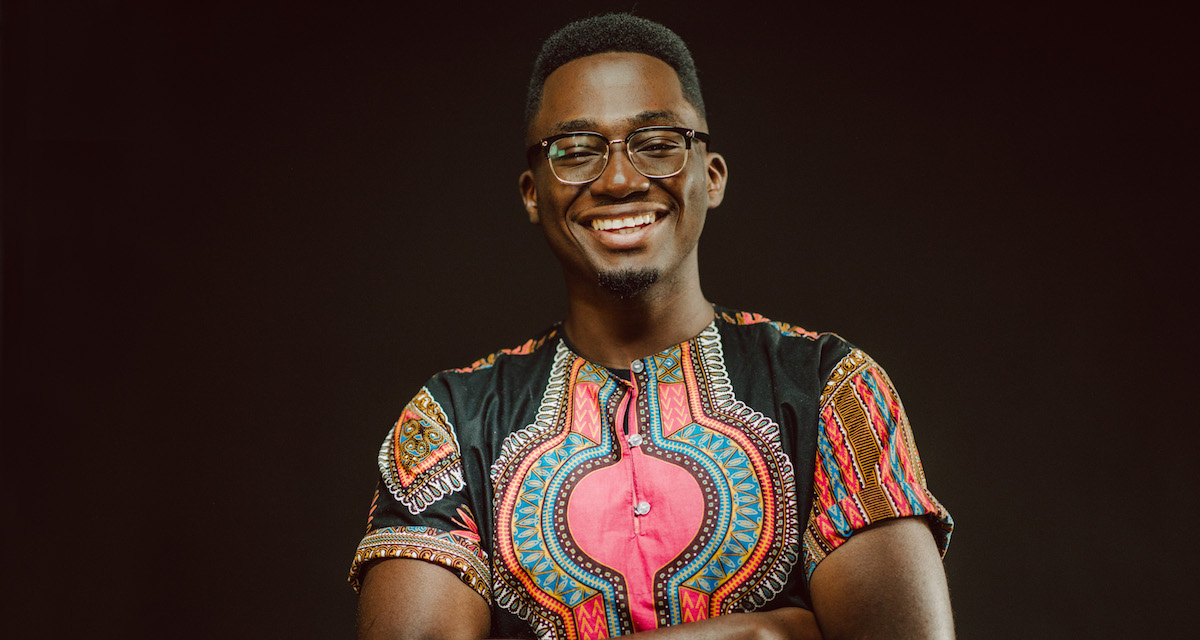Places for Truth Telling
This article originally appeared in the spring 2019 issue of STILLPOINT magazine
There are some places better left private. A doctor’s office, a jury room, a parent-teacher conference, a marriage counseling session: if these places became public, they would no longer feel safe. When there’s little protection, little is said.
This is a story of how safe places get made.
Anthony Katoto ’19 was born and raised in the Democratic Republic of Congo (DRC) in the capital city, Kinshasa—a city known for its music scene, its star NBA athlete Mutombo Dikembe and being the second largest French-speaking city in the world.
There, Anthony grew up eating “real Belgian waffles,” he says, enjoying his big family, and occasionally starring in music videos for musicians like Gaël and Mike Kalambay. Because Anthony’s father worked as a Christian music producer with KIN-EXPRESS Productions, artists would film music videos at his house and they always needed extras. Each summer his father’s job took Anthony and the entire family to Belgium, so Anthony spent much of his life betwixt these two countries.
As Anthony recounts his own story, he includes the DRC’s history, from its early kingdoms to independence, ultimately homing in on a critical moment in the middle—the rise of the Atlantic slave trade and Belgian occupation.
“Belgium and my country share a history,” Anthony begins. “Just before the Scramble for Africa—a time when European countries each took a different part of Africa—King Leopold II of Belgium took my country.”
As the rubber trade boomed, so began decades of slavery, exploitation and exposure to fatal diseases. Half of the population of the Congo Free State (now the DRC)—roughly 10 million people—died under King Leopold II. But, on the other side of the Atlantic, there were people who would not stand idly by while one of history’s greatest crimes unfolded. A few years into Belgian rule, the first generations of Gordon students were preparing to go and serve in the Congo Free State—as part of College founder A. J. Gordon’s vision.
Anthony tells his country’s story in addition to his own because he’s profoundly aware of how these historical events play out in the present and how they not only managed to drive whites and blacks apart, but also blacks and blacks apart.
After graduating from high school in the DRC, Anthony moved to U.S. for a year to learn English at the University of Chicago’s English Language Institute. He lived in a dorm so he could get more exposure to American culture and, coincidentally, African American culture through his roommate, Jalen. In living with Jalen, Anthony confronted some of his own media-fueled stereotypes as well as a notion he’d inherited from his parents’ generation that still asserted African Americans had lost their cultural identity after years of slavery in America.
“People don’t realize that outside of black versus white issues, there are issues within the black community,” says Anthony. “There is a lot of animosity and division between African Americans, Africans and people from the Caribbean. The roots of those issues go straight back to the Atlantic slave trade.”
When Anthony came to Gordon, he wanted to take part in bringing together the greater black community, so he and his friend Emmanuel Appiah-Mensah ’18 cofounded a student club at Gordon called A.F.R.O. Hamwe. Hamwe is a Kinyarwandan word that translates to “unity,” and A.F.R.O stands for “All For Reclaiming Our.”
Together, they are “all for reclaiming our unity.”
“We are creating a safe space,” he says, “where students of African descent can share their experiences and views on social, political, historical and religious topics. We needed a space where we could be unapologetically black. Healing is found in letting the part of us that has been repressed come out.”
In a time of trying to make space for everyone at the table, Anthony is carving out the corners of the room for more private conversations that must take place first—so that all feel welcome.
 The Bell
The Bell